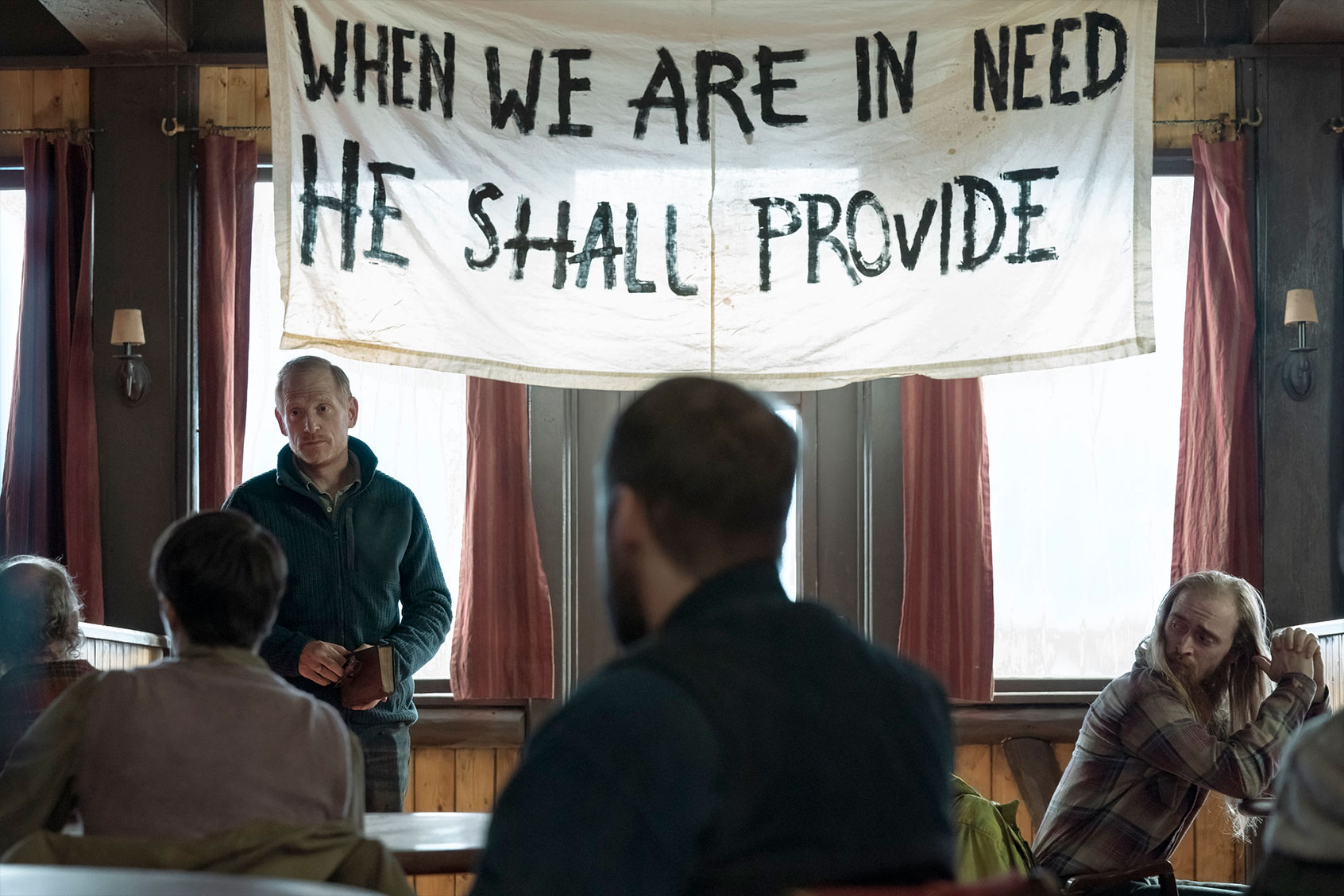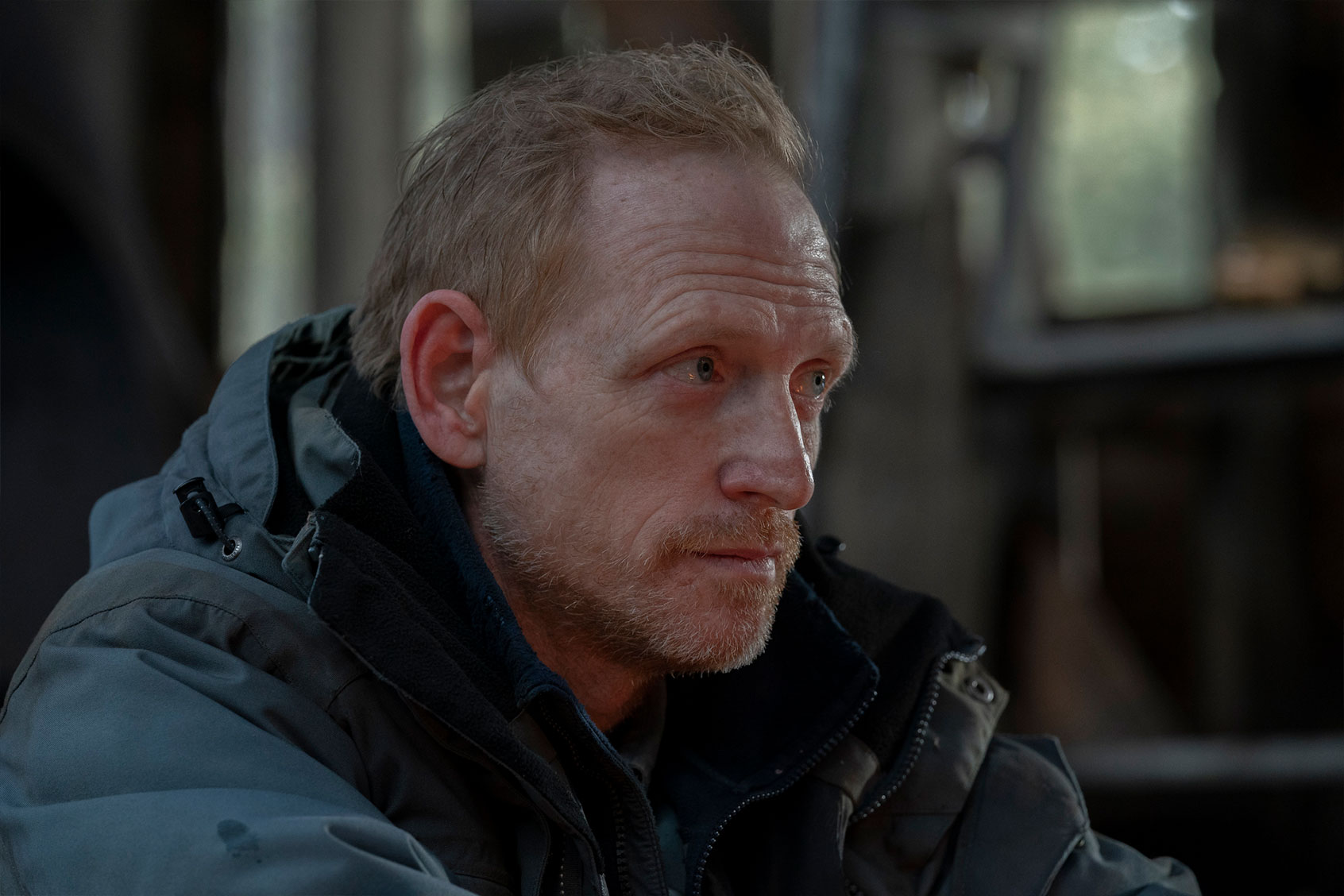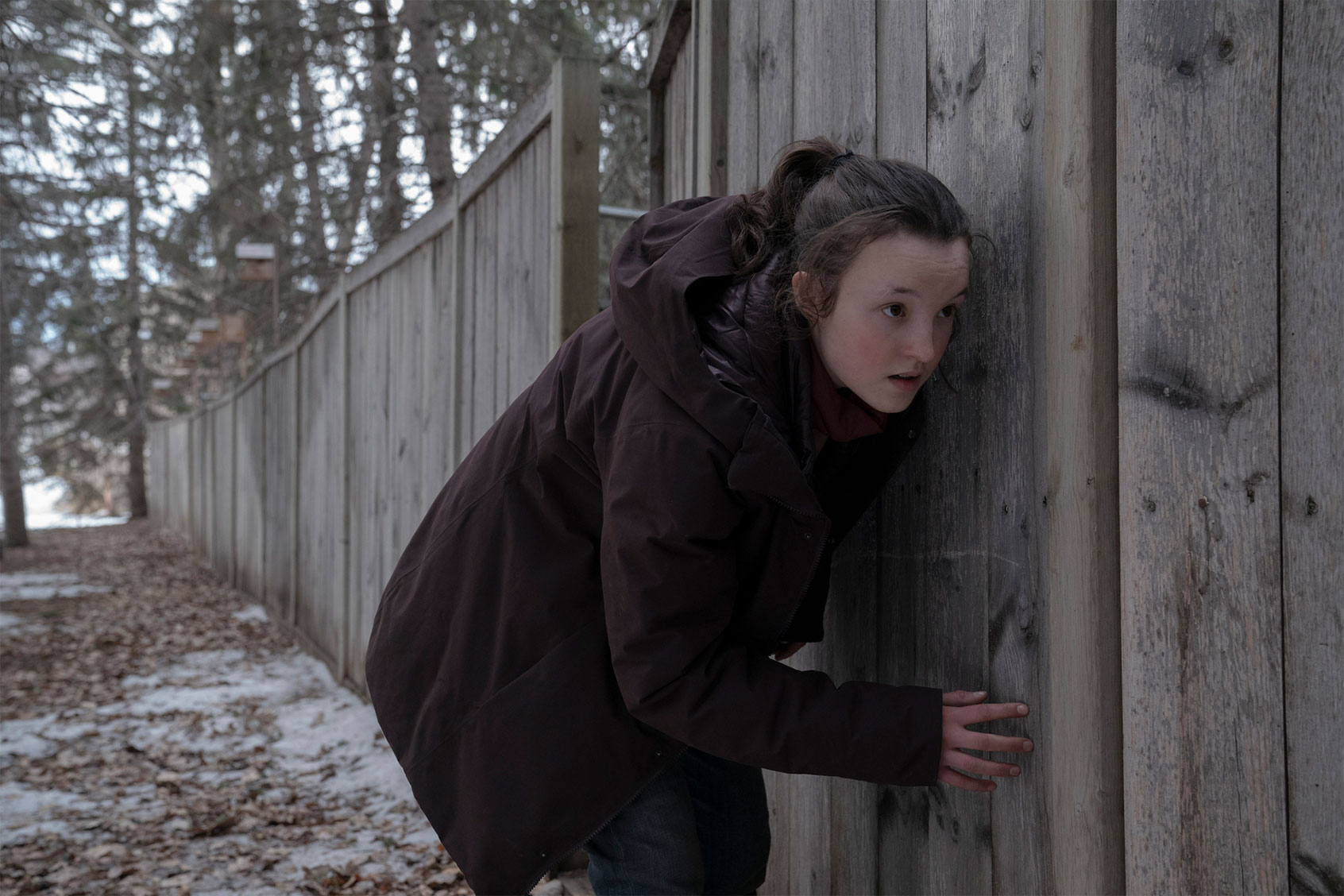Post-apocalyptic dystopias rarely consider childhood with much care, expecting young survivors to relinquish immaturity to focus on staying alive. This legitimizes their adultification: Carl Grimes quickly becomes his father’s backup on “The Walking Dead.” “Hunger Games” heroine Katniss Everdeen becomes her family’s sole provider after her dad dies and her mother mentally checks out.
“The Last of Us” feints at demanding the same of Ellie (Bella Ramsey), a 14-year-old who puts up a tough front at first, but her caretaker Joel (Pedro Pascal) realizes that her juvenile mischievousness can’t be denied. Try as he might to squelch them, Joel’s paternal urges rise up to meet her playfulness when she regales him with puns or teases him for his seriousness.
That figurative tug of war wends through the season, mainly focusing on Joel’s emotional evolution regarding Ellie. Only in the seventh episode, “Left Behind,” and the season’s penultimate, “When We Are in Need,” do we zero in on her perspective as a teenage girl longing to be accepted by someone who understands her.
Childhood is a luxury, but girlhood holds a discrete status within it, even after the world ends. In the throes of its highs, female juvenescence moves Ellie to risk anything for and with her best friend. Through the events of “When We Are in Need,” she comes to understand that her girlhood marks her as a target for men like David (Scott Shepherd), a preacher, leader, and . . . other things.
David is Joel’s opposite. He has compassionate eyes, reads Bible passages in a gentle voice, and radiates certainty. And his people need him because they are frightened. One of them was killed by an unknown man. Joel.
At the close of “Left Behind” Ellie was running out of time to save Joel, whose stabbing wound is dangerously infected. “When We Are in Need” opens by showing David’s group holed up in a town called Silver Lake. They would seem to be her hope. But they are starving inside of a steak house – now there’s some foreshadowing – while listlessly praying.
Joel’s dead attacker left behind a wife and a bereft daughter. But the girl’s grief doesn’t prevent David from striking her hard enough to knock her out of her chair, all while maintaining his patient smile.
 The Last Of Us (Liane Hentscher/HBO)
The Last Of Us (Liane Hentscher/HBO)
Then he informs the girl that she’s to regard him as her father now. No one objects. David is a Man of God, after all. He’s also led his followers into cannibalism – perhaps out of necessity, but one suspects not.
Series co-creator Craig Mazin writes David as a metaphor for the twin perversions of absolute power and male supremacy. He is willing to take what and who he wants, consuming anyone who crosses him and justifying his sociopathy with the divine right apportioned to him by the desperate. His most trusted soldiers fear him. Ellie does not, at first. Nor does she recognize that her defiance flips his switch.
They meet as she’s hunting a deer and discovers David and his right-hand man standing over her kill. She has the drop on the men, but David talks her out of pulling the trigger, persuading her to trade at least half of the deer for penicillin. He sends his lieutenant to retrieve the medication while he waits in the snow with her. And talks.
One of the first things many young women learn is that the nefarious have a habit of announcing who they truly are by identifying with what they aren’t. “I’m a decent man, just trying to take care of the people who rely on me,” he tells Ellie, moments before his man circles behind Ellie with a gun trained on her back. But David has him hand over the antibiotic and lets the girl return to Joel to administer it. They’ll hunt her later, David assures him, which they do, and successfully.
 The Last Of Us (Liane Hentscher/HBO)
The Last Of Us (Liane Hentscher/HBO)
In a recent story Salon’s Allison Stine points out that the literal monsters in “The Last of Us” aren’t scary. But Shepherd’s take on David is bone-chilling due to his serene familiarity. We read news reports about men like David on the regular, who abuse their power and ensnare young women. During their campfire chat, David tells Ellie that he taught students who were about her age before the apocalypse, which is when he claims he found God.
“So you went from teacher to preacher because, what, it f**kin’ rhymes?” she deadpans. He laughs softly at this, securing in the knowledge that she doesn’t know to recognize the connection between schools and churches as perfect predatory environments.
So when we see his people cooking up cubes of human flesh, knowing what it is despite a claim that it is venison, this is somehow less gut-churning than that chat. Or his attempt to woo Ellie after he’s caged her in the back of the steakhouse kitchen, where the meat is butchered.
Once she’s cornered, he offers her status as his equal, claiming an appreciation for her toughness. Reaching to touch her through the metal bars, he places his hand on top of hers, and for a moment she plays along. Then she cracks one of his digits, making this holy man curse her with the C-word – a very intentional choice on Mazin’s part. The slur reduces Ellie to an object, a body part, the meat he always intended to consume.
Want great food writing and recipes? Subscribe to Salon Food’s newsletter, The Bite.
She reclaims her humanity, and her girlhood, by telling her potential rapist who she is. “Ellie. Tell them that Ellie is the little girl who broke your F**KING FINGER.”
The evil preacher is, of course, a dystopic trope as common as cannibalism. But it also leaves no pretense for humanity in David, reinforcing Ellie’s fighting instinct. It’s not only her life on the line, but her flesh and spirit. “I’ve changed my mind. I’ve decided you do need a father,” David purrs, cleaver in hand, and ready to corner her. “So I’m going to keep you. And I’m going to teach you.” Ugh.
Despite Joel battling through David’s men and feverish wheezing, Ellie saves herself, setting the building on fire and, right when her captor thinks she’s overpowered, chopping him to pieces with his cleaver, screaming all the while. She stumbles out of the building and straight into Joel, who finally confirms that he sees her as she is. “It’s OK, baby girl. I got you,” he says, walking her away from that hell, shoulder to shoulder.
Read more
about “The Last of Us”

